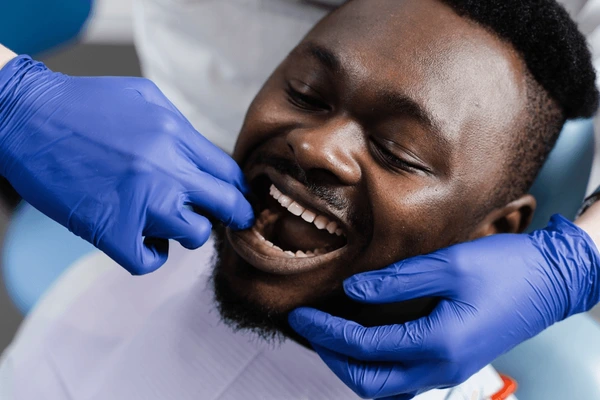The importance of oral health: Why you shouldn’t wait for the pain
According to recent statistics from the Uganda Dental Association (UDA), 9 out of 10 Ugandans suffer from dental problems.

Jane Namakula, a student at Makerere University had been dealing with toothaches for months. “It started as a dull ache,” she recalled, “but I kept ignoring it, hoping it would go away.”
Like many Ugandans, Namakula only visited the dentist when her pain became unbearable. By then, what could have been a simple cavity had developed into something much worse, leading to a painful root canal and costly treatment. Her story is all too common in Uganda, where dental care is often neglected until it’s too late.
According to recent statistics from the Uganda Dental Association (UDA), 9 out of 10 Ugandans suffer from dental problems. The prevalence of these issues underscores the need for greater awareness and intervention in oral health care.
“Many people don’t realize the importance of regular dental hygiene,” explains Dr. Michael Tukei, a newly elected leader of UDA, “and they only visit the dentist when they start experiencing pain.”
Oral health is often taken for granted until problems arise. Dentist Dr. Ahmed Muwonge explains that the mouth is home to a variety of germs. “Like other parts of the body, the mouth is full of germs, most of which are harmless,” Dr. Muwonge says.
However, the mouth serves as the entry point to the digestive and respiratory tracts, meaning that poor oral hygiene can lead to more than just cavities and gum disease—it can open the door to a host of other health issues.
“When oral health is neglected, germs in the mouth can multiply and cause infections,” says Dr. Muwonge. These infections can range from tooth decay to gum disease. But the effects don’t stop there—oral germs and inflammation have been linked to systemic health problems like diabetes, cardiovascular diseases, and even respiratory infections. “The mouth is a gateway to the body,” Muwonge notes, “and poor oral health can have widespread effects.”
The cost of ignoring oral health
Namakula’s case is a cautionary tale. A simple cavity, had it been treated early, would have been far less expensive to address than the eventual root canal and crown she needed.
Dr. Tukei points out that many people in Uganda wait until their dental issues are severe, which leads to more complicated and expensive treatments. “By then, the damage is already done, and what could have been a small dental bill turns into something much larger.”
The economic impact of poor oral health is significant. Left untreated, dental issues can affect a person’s ability to work, attend school, and lead a normal life. The Uganda Dental Association advocates for regular dental checkups as a way to prevent these larger issues. “Preventative care is always cheaper than emergency care,” Dr. Tukei says, adding that an annual dental visit can save both money and pain.
More than just preventing pain and expensive treatments, good oral hygiene plays a critical role in overall health. Dr. Muwonge explains that the body’s natural defenses and proper oral care like brushing, flossing, and regular dental visits keep harmful bacteria in check.
But when oral hygiene is neglected, bacteria levels increase, which can lead to conditions such as periodontitis, a severe gum disease.
There is also a growing body of research linking oral health to chronic diseases. For example, people with gum disease are more likely to suffer from cardiovascular issues. Additionally, individuals with conditions like diabetes and HIV/AIDS are more susceptible to oral infections, which can, in turn, worsen their underlying health problems.
Dr. Muwonge emphasizes that good oral health is achievable with a few simple daily habits. Brushing your teeth at least twice a day for two minutes using a soft-bristle toothbrush and fluoride toothpaste is crucial, and it’s just as important to brush your tongue, where bacteria can accumulate. Cleaning between your teeth daily with floss or a water flosser helps remove plaque and food particles that toothbrushes can’t reach.
Diet also plays a role in oral health. Eating a healthy diet while limiting sugary foods and drinks helps prevent tooth decay. It’s equally important to replace your toothbrush every three to four months, or sooner if the bristles become worn.
Regular dental visits at least once a year for checkups and cleanings are essential in catching potential issues early on, before they develop into more serious conditions.
In some cases, your dentist may suggest more frequent visits or refer you to a specialist, such as a periodontist, if your gums need extra care. And perhaps most importantly, avoiding tobacco use is crucial, as it increases the risk of gum disease and oral cancer.







